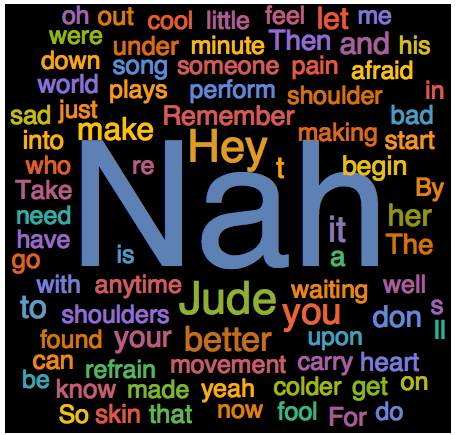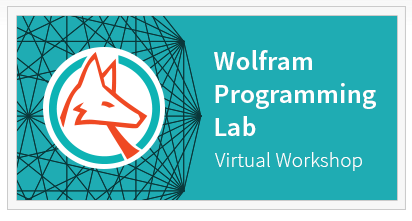An Elementary Introduction to Wolfram Programming Lab: There Is More Than Just Explorations
I hope you’re enjoying the Wolfram Programming Lab series. Today I will be sharing more classroom experiences using Programming Lab and what it makes possible. I will also describe the resources available to interested educators. So let’s get started!
One of the local middle schools here in Champaign-Urbana conducts a community enrichment program for its students. When we heard about this, we knew that we wanted to participate and continue investing in our local community and school districts. So I’ve been working with a group of sixth graders for the past few weeks.
One of my favorite things about Programming Lab is that it can be accessed directly from a web browser, making workshops run smoothly without needing to download software. Once students create a free account in Programming Lab, all their work is automatically saved and they can always go back to it. And some always do! I love it when students come up to me and say they tried to do something and it worked, or ask for my help when it didn’t. Both of these feel awesome, as every teacher knows.
As always, every workshop begins with the basics. When we have the opportunity to work with students for an extended duration over multiple weeks or a semester, there is another cool feature of Programming Lab that we use. Stephen Wolfram wrote a book that also appeals to a younger audience, to introduce them to programming. An Elementary Introduction to the Wolfram Language is obviously a great place to start.

The entire book is available for free online, and is also available fully within Programming Lab.

While it is a textbook, it does not assume or require any prior programming knowledge. What makes it unique and especially suited to a middle-school classroom is that it also does not assume any knowledge of math beyond basic arithmetic. It really does start from scratch.

This gives educators a lot of freedom on how to proceed with their goal of introducing code to their students. For a younger audience and for students who have had no previous exposure to coding, Programming Lab is an ideal choice. It packages powerful ideas in small, accessible pieces of code. Students learn by doing, and they have a large variety of Explorations to choose from. A natural next step after this would be to present the material in a more formal fashion. This is where the book comes in. It provides a perfect introduction, and because it is available free online, students can code along with the book. This makes for better learning, where students are actively working on the book and exercises as they learn.

Choosing appropriate sections of the book, the students and I covered the foundations of the language. I asked them questions like, “What is a function?” Illinois students learn these concepts from the input-rule-output problem, so they were able to quickly transfer this to a computer science setting. I couldn’t ask enough questions about the code to keep up with them. Usually when one or two students are enthusiastic and answer many questions, the others slowly follow. Here everyone was enthusiastic, and it was raised hands all the way!
We’ve said it before, and it’s true: the material in Programming Lab and the book is inherently interesting to the kids. I have observed this multiple times. They can produce significant results quickly, and who doesn’t love that? While the Wolfram Language powers some of the most robust software applications today, it is also accessible enough that a young middle-school student can create with it. When we started exploring Programming Lab, it was clear they were hooked. We went beyond the Explorations in Programming Lab, creating word clouds of their favorite songs. I heard many students say, “This is cool. I want to print this.” I was watching these students connect their interests to code, and the results were wonderful to see.

This has been another fantastic workshop series with Wolfram Programming Lab. The more workshops we conduct, the clearer it is that the material resonates with students. Halfway through the series, we decided to take their learning further by giving them a programming project! Now the students are working in teams to create their own Mad-Libs-like website. We have sixth graders doing everything—coming up with their Mad Libs story (fun!), designing the web form, and writing the code necessary to make this all work. They are using a general project template that guides them, but they are ready to do this after just four sessions using Programming Lab and the textbook together.

This just shows me yet again that if we provide our students with the right tools, they can create magic with them. I am very excited to see the Mad Libs they come up with!
Wolfram regularly hosts virtual workshops for educators, and we are holding one specifically to discuss Wolfram Programming Lab.
What: Introducing Wolfram Programming Lab: Virtual Workshop for Educators
When: February 25, 2016, 4–5pm EST
Where: Free online
Who: Anyone who’s interested—no coding experience needed!
We’ll go over how to get started using Programming Lab, its built-in Explorations, and case studies from elementary schools and secondary classrooms with plenty of time for Q&A. You can register here. I look forward to seeing you there.




Comments